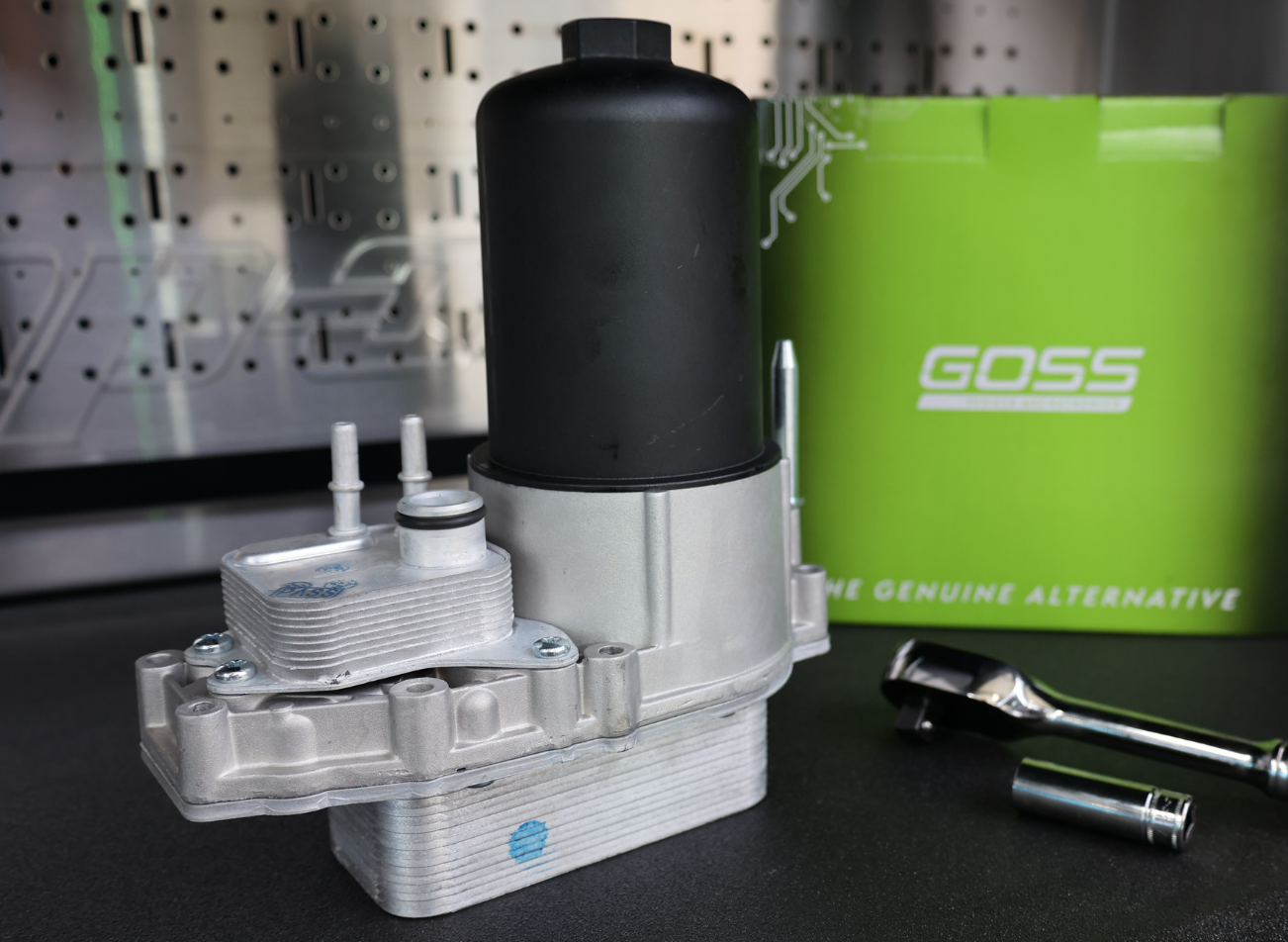News & Info
Goss Oil Coolers
30/05/2022
The primary purpose of an Oil Cooler is to lower the fluid temperature in a lubrication system. This is achieved by transferring heat through a heat exchanger and recirculating it. Many oil coolers also combine the use of engine coolant to pass through a heat exchanger and draw excessive heat from the oil cooler. There are various types of coolers which include basic tube and fin style, multiple cooling rows or stacked-plate types. They are used to cool engine oil, transmission oil or power steering fluid. These can be fitted in various locations including in-front of the engine radiator, behind the bumper cover and also incorporated within the engine oil filter housing.
With the use of low viscosity oils in most late model engines incorporating multi valve and direct injection systems, it is important that the lubrication system is kept at its optimal temperature. If this is not achieved, it can lead to excessive oil consumption due to oil evaporating or possible severe engine damage due to poor lubrication.
Symptoms of a bad or failing oil cooler include; an external oil leak between the oil cooler adapter and filter housing. If the leak is small, the driver may only notice the oil level slowly dropping between service intervals. If a large leak is present, there may be evidence of an oil leak noticed on the engine or a puddle when the vehicle is parked.
If the oil cooler fails internally this can cause the high oil pressure to over pressurise the cooling system and force oil into the cooling system. If this happens it can either cause the engine to overheat, blow a cylinder head gasket or hydraulic lock a cylinder leading to catastrophic failure.
With many late model vehicles, they have inherited many common issues. Some oil coolers may develop leaks and fail due to a manufacturing flaw or design. Some oil coolers have a short lifespan due to extended service intervals causing a build-up of deposits and restricting the efficiency of the cooler.
Rather than replacing the original cooler with the same flawed unit, the team at GOSS have an alternative solution. After hours of R&D, they have now developed a range of high-quality aftermarket oil coolers. Some units have been reverse engineered to determine the original cause of failure and manufactured to prevent any further common failures arising. All units are tested to meet or exceed OE manufactured specifications.
GOSS oil coolers also come with gaskets and seals, (where necessary) to ensure a correct and efficient installation is possible.
Search by vehicle application here
Back to Articles


